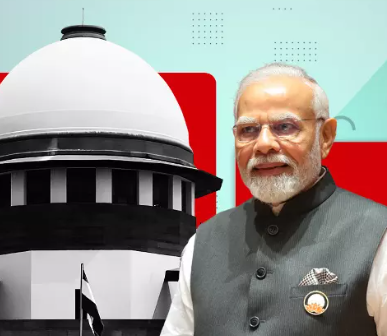
In a recent legal development, the Supreme Court of India made a significant decision by dismissing a petition filed by Sachin Chaudhary, the Secretary of the Uttar Pradesh Youth Congress. Mr. Chaudhary had sought the quashing of an FIR lodged against him for an alleged remark he made, claiming that Prime Minister Narendra Modi was involved in a “love affair” with Gautam Adani, the prominent industrialist and founder-chairman of the Adani Group.
The Supreme Court’s decision, delivered by a bench comprising Justices Aniruddha Bose and Bela M. Trivedi, highlights the complexities surrounding freedom of speech, political discourse, and the boundaries of acceptable criticism in public discourse.
While the Court’s ruling did not delve into the merits of the FIR or the alleged statement itself, it signifies the judiciary’s cautious approach in matters involving potentially defamatory or contentious remarks against public figures. The decision underscores the principle that public discourse must be carried out responsibly and should not venture into unsubstantiated or derogatory allegations, even in the realm of political criticism.
This case exemplifies the delicate balance between freedom of expression, which is a fundamental right, and the responsibility that accompanies the exercise of this right. It also serves as a reminder that legal remedies, including FIRs, can be pursued when public statements are perceived to cross the line into defamation or character assassination.
While this ruling maintains the status quo regarding the FIR against Mr. Chaudhary, it does not preclude further legal proceedings or investigations into the matter. The decision underscores the importance of adhering to legal processes and standards in addressing allegations of defamation or slander in the realm of public discourse, thereby upholding the principles of justice and accountability.



